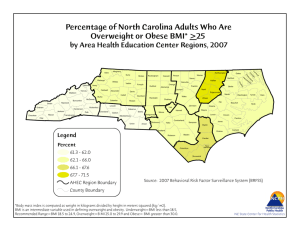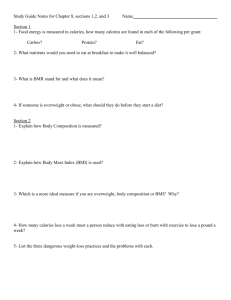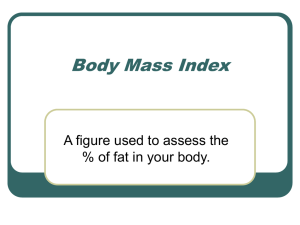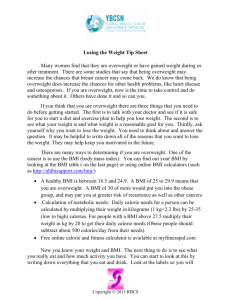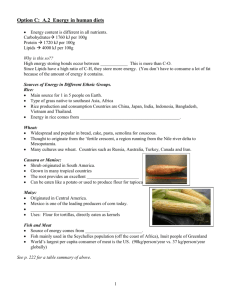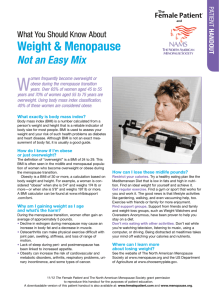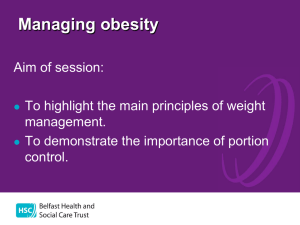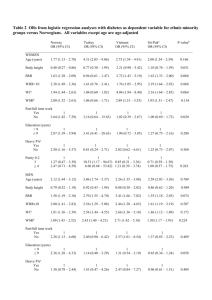(BMI) Number Mean? - unicarestateplan.com
advertisement
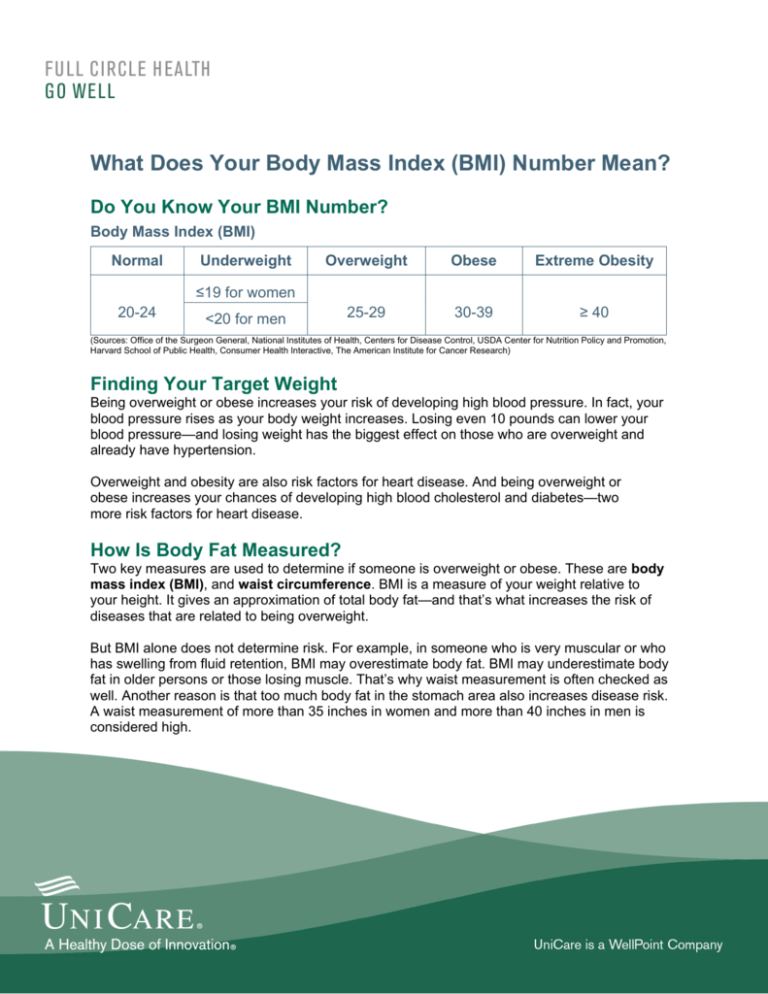
What Does Your Body Mass Index (BMI) Number Mean? Do You Know Your BMI Number? Body Mass Index (BMI) Normal Underweight Overweight Obese Extreme Obesity 25-29 30-39 ≥ 40 ≤19 for women 20-24 <20 for men (Sources: Office of the Surgeon General, National Institutes of Health, Centers for Disease Control, USDA Center for Nutrition Policy and Promotion, Harvard School of Public Health, Consumer Health Interactive, The American Institute for Cancer Research) Finding Your Target Weight Being overweight or obese increases your risk of developing high blood pressure. In fact, your blood pressure rises as your body weight increases. Losing even 10 pounds can lower your blood pressure—and losing weight has the biggest effect on those who are overweight and already have hypertension. Overweight and obesity are also risk factors for heart disease. And being overweight or obese increases your chances of developing high blood cholesterol and diabetes—two more risk factors for heart disease. How Is Body Fat Measured? Two key measures are used to determine if someone is overweight or obese. These are body mass index (BMI), and waist circumference. BMI is a measure of your weight relative to your height. It gives an approximation of total body fat—and that’s what increases the risk of diseases that are related to being overweight. But BMI alone does not determine risk. For example, in someone who is very muscular or who has swelling from fluid retention, BMI may overestimate body fat. BMI may underestimate body fat in older persons or those losing muscle. That’s why waist measurement is often checked as well. Another reason is that too much body fat in the stomach area also increases disease risk. A waist measurement of more than 35 inches in women and more than 40 inches in men is considered high. Check the chart below for your approximate BMI value. Overweight is defined as a BMI of 25 to 29.9; obesity is defined as a BMI equal to or greater than 30. If you fall in the obese range according to the guidelines, you are at increased risk for heart disease and need to lose weight. You also should lose weight if you are overweight and have two or more heart disease risk factors. If you fall in the normal weight range or are overweight but do not need to lose pounds, you still should be careful not to gain weight. If you need to lose weight, it’s important to do so slowly. Lose no more than 1/2 pound to 2 pounds a week. Begin with a goal of losing 10 percent of your current weight. This is the healthiest way to lose weight and offers the best chance of long-term success. There’s no magic formula for weight loss. You have to eat fewer calories than you use up in daily activities. Just how many calories you burn daily depends on factors such as your body size and how physically active you are. One pound equals 3,500 calories. So, to lose 1 pound a week, you need to eat 500 calories a day less or burn 500 calories a day more than you usually do. It’s best to work out some combination of both eating less and being more physically active. For more information on BMI and weight management, visit www.unicare.com. Sources: • U.S. DEPARTMENT OF HEALTH AND HUMAN SERVICES, National Institutes of Health • National Heart, Lung, and Blood Institute, National High Blood Pressure Education Program, NIH Publication No. 05-5213, August 2005 • U.S. DEPARTMENT OF HEALTH AND HUMAN SERVICES, National Institutes of Health • National Heart, Lung, and Blood Institute, National High Blood Pressure Education Program, NIH Publication No. 03-5232, May 2003 • This information is intended for educational purposes only, and should not be interpreted as medical advice. Please consult your physician for advice about changes that may affect your health. 11307MAMEN (08/09)
